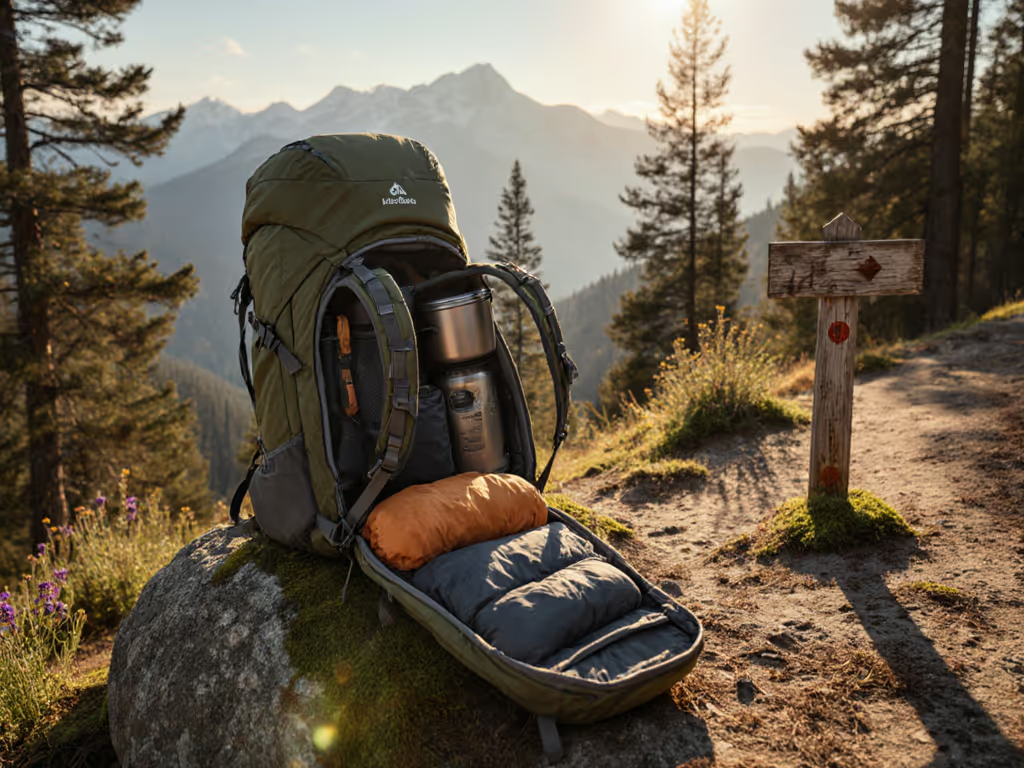
Best Beginner Hiking Backpacks 2025: Top 5 Comfort Picks
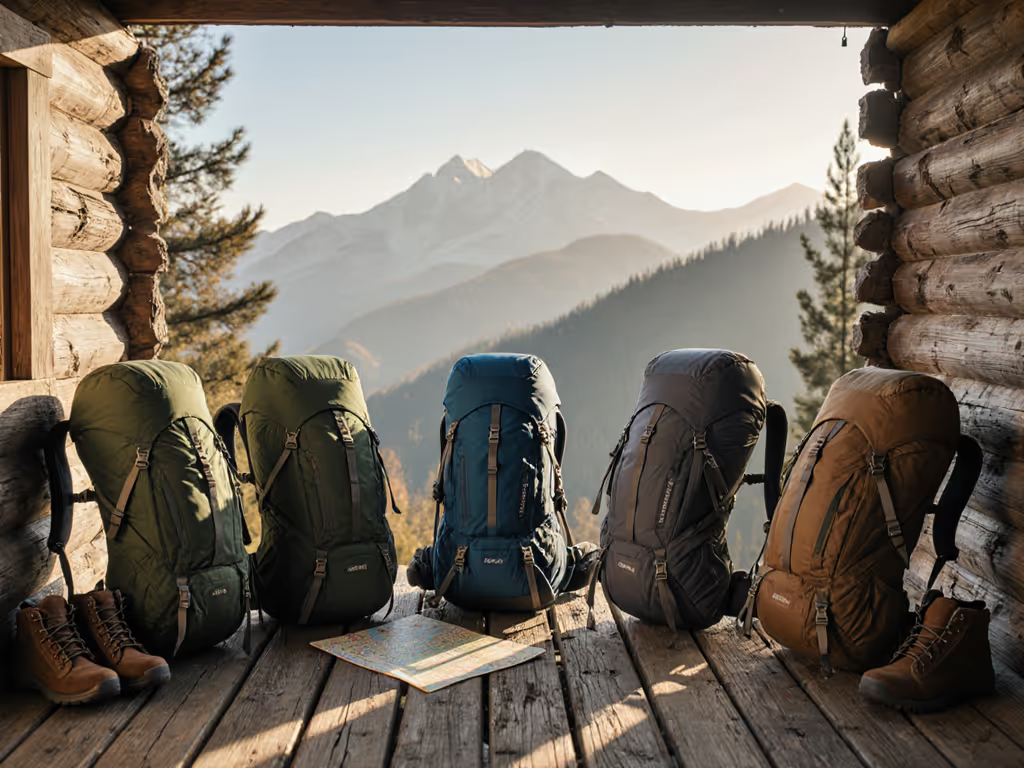
When you're just starting your backpacking journey, finding the best backpack for hiking camping shouldn't feel like solving a puzzle. You deserve a backpack hiking pack that works with your body, not against it, whether you're carrying a light weekend load or exploring what multi-day adventures might hold. As someone who's fitted hundreds of hikers at community events, I've seen how the right fit transforms not just comfort, but confidence on the trail. Too many beginners walk away thinking backpacking "isn't for their body," when really, it's just that no one showed them how to make the pack adapt to them.
Why Comfort Isn't Optional (It's Your Right)
Let's address the elephant in the trailhead: the idea that discomfort is part of "earning your stripes" as a hiker. It's not. A pack that digs into your shoulders, rides up your back, or slips off your hips isn't building character, it's building barriers to your continued enjoyment of the outdoors. Comfort is a right, not a luxury, and the best starter backpacks will respect your body's unique geometry.
Fit that respects your body feels like permission.
When I taught a pop-up fit session last spring, a hiker quietly shared they'd nearly given up on backpacking because nothing ever felt right. We measured their torso, rotated their hip belt, and rerouted the load lifters. Before they even saw themselves in the mirror, I watched their shoulders drop and their breathing deepen. That's the moment I realized fit isn't vanity, it's care. When your pack carries the weight properly, you carry less emotional baggage about whether the outdoors "has space for you."
Step 1: Understand Your Body, Not Just Numbers
Before you even look at packs, understand what your body needs from a backpack hiking pack. Forget standard "S/M/L" sizing. What matters is how a pack interfaces with your unique frame.
Measure your torso correctly:
- Find your C7 vertebra (the bony bump at the base of your neck when you tilt forward)
- Locate your iliac crest (the top of your hip bones)
- Have a friend measure the curve between these points with a flexible tape measure
- Compare this measurement to each brand's specific torso range (not just "medium")
Many beginners stop at this measurement, but it's just the beginning. What about your hip shape? Your shoulder width? Your chest profile? A pack that positions the sternum strap too low for a fuller chest will always feel unstable. Hip belts that sit on the "hip bones" rather than around them won't transfer weight properly for straight-waisted bodies.
Here's a gentle truth: your body isn't "wrong" because it doesn't fit standard sizing, it's that standard sizing is too narrow. The best backpack for hiking camping for you will acknowledge your geometry.
Step 2: Decode the Features That Actually Matter for Beginners
Beginners often get lost in technical jargon, but you only need to focus on a few key beginner backpack features that directly impact comfort and usability.
Hip belt design is non-negotiable. Your hips should carry 80-90% of the weight. Look for:
- Adjustable padding thickness (more foam isn't always better, some bodies need firm support)
- Belt rotation capability (so it sits flush with your hip bones regardless of angle)
- Multiple adjustment points (not just one buckle)
Torso adjustment systems determine whether the pack's frame matches your spine length. The best beginner packs offer:
- Sliding yoke systems (like Osprey's AirScape)
- Modular shoulder straps that can be raised or lowered
- Visible measurement markers so you can replicate your fit later
Load lifters (those small straps connecting shoulder straps to the top of the pack) are the secret weapon for stability, especially on descents. They should:
- Angle naturally toward your shoulders (not pull straight back)
- Have enough length to adjust for different torso sizes
- Stay secure without constant readjustment
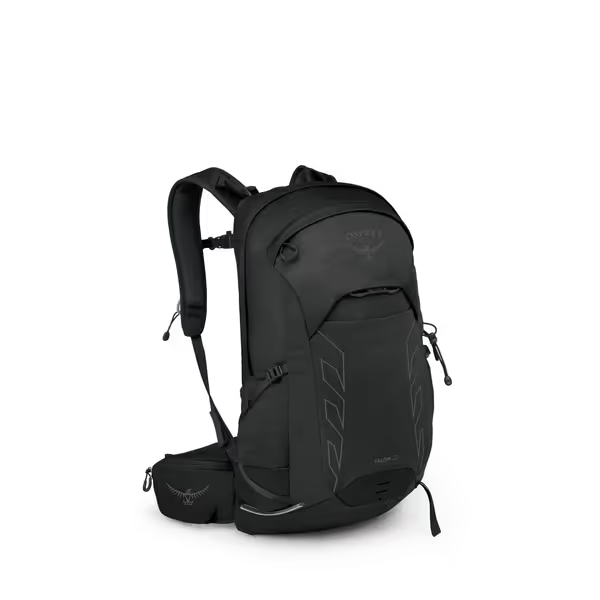
Osprey Talon 22L Lightweight Hiking Backpack
Step 3: Testing Protocol: What to Look For Beyond the Store Floor
When testing a potential backpack hiking pack, don't just stand still with a sandbag. Real hiking happens in motion, on uneven terrain. Use this field-tested evaluation method:
- Load it to your target weight (25-35 lbs for most beginners)
- Adjust everything - hip belt snug but not tight, shoulder straps just taut enough
- Micro-adjust, then walk - take 20 steps, then fine-tune one element (like load lifters)
- Repeat with different terrain simulations (side-hilling, stairs, squatting)
Pay attention to subtle cues:
- Does the pack move with you or fight your motion?
- Can you take a full breath without shifting?
- Do your hands stay warm (indicating no nerve compression)?
A pack that feels "fine" standing still but causes hand numbness on a walk isn't fit, it's deception. The right pack should feel like an extension of your body, not an appendage.
Step 4: Top 5 Comfort-Focused Backpacks for Beginners in 2025
After years of community fit sessions and analyzing what makes a pack truly work for diverse bodies, I've identified these best starter backpacks that prioritize adaptability over rigid sizing.
1. Osprey Stratos 24L
For beginners who prioritize ventilation without sacrificing stability, the Osprey Stratos 24L's AirSpeed suspension is revolutionary. What makes it exceptional for diverse bodies is its taller frame geometry combined with a molded ladder torso adjustment system that extends the fit range significantly.
Why it works for more bodies:
- The 3D-tensioned mesh back panel creates consistent airflow without compromising weight transfer
- Torso adjustment range accommodates both shorter torsos (15") and longer ones (20") with visible measurement markers
- Hip belt padding is firm enough to support heavier loads but contours to various hip shapes
The panel-loading design makes organization intuitive, perfect for beginners who might overpack initially. At 2.78 lbs, it's light without feeling flimsy, and the included raincover means you're prepared for unexpected weather without adding bulk.
Beginners with sensitive backs particularly appreciate how the frame maintains stability without "hugging" too tightly, giving that essential balance between support and breathability. The side pockets sit at a natural access angle whether you're 5'2" or 6'0", addressing a common pain point for many beginners.
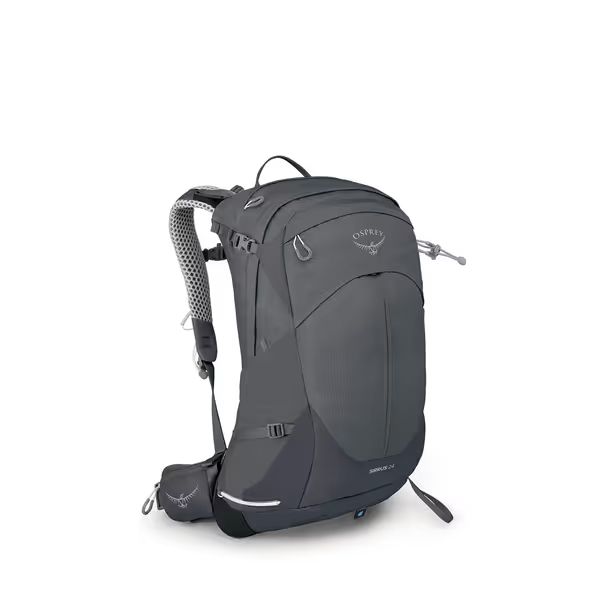
Osprey Stratos 24L Men's Hiking Backpack
2. The North Face Borealis 28L
While marketed as a commuter pack, the Borealis has become a stealth favorite among beginner backpackers for its exceptional body adaptability. Certified by the American Chiropractic Association, its FlexVent suspension system provides thoughtful support for a wide range of bodies.
Why it works for more bodies:
- Articulated shoulder straps that move with upper body rotation
- Rounded back panel accommodates different spinal curves without pressure points
- Removable waist belt lets you customize support based on your load
The genius of the Borealis is in its adjustable details: the sternum strap slides vertically to accommodate different chest profiles, and the 360-degree reflective details provide safety without compromising on style. At 28 liters, it's perfect for beginners testing multi-day trips without committing to a larger pack.
What surprises beginners is how well it handles moderate loads (25-30 lbs) thanks to strategic weight distribution. The laptop sleeve doubles as a protective layer for delicate gear, and the external fleece-lined pocket keeps essentials accessible without digging through your main compartment.
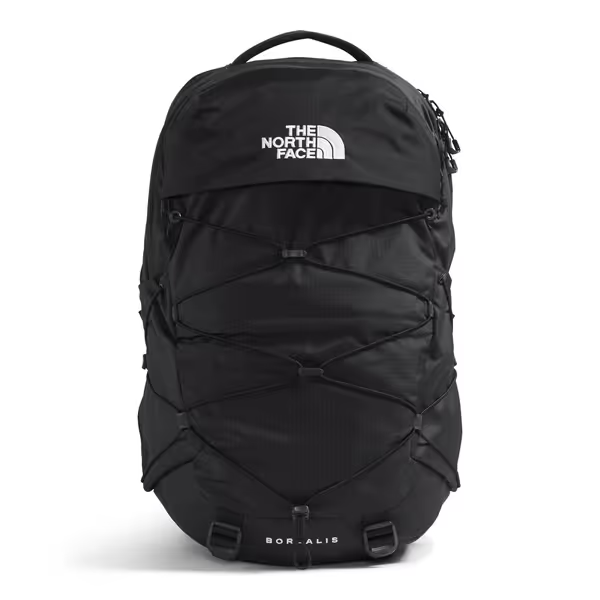
The North Face Borealis Commuter
3. Osprey Talon 22L
For beginners prioritizing close-to-body stability on technical terrain, the Talon 22L delivers precision without compromise. Its AirScape backpanel creates that elusive balance between ventilation and load transfer that so many beginners struggle to find.
Why it works for more bodies:
- Micro-adjustable sliding yoke for fine-tuned torso fitting
- Continuous-wrap harness and hipbelt move with body positioning
- Breathable mesh maintains comfort in hot conditions without sacrificing support
The Talon shines for beginners with shorter torsos or those who need precise load positioning on steep terrain. Unlike many packs that force you to choose between ventilation and stability, the Talon's suspension system delivers both. The dual-zippered panel access means you can reach your gear without removing the pack, a game-changer for beginners still learning efficient packing.
I've watched beginners with history of shoulder strain find relief with the Talon's shoulder strap design, which distributes pressure more evenly across the trapezius muscles. The bike helmet attachment (LidLock system) is also useful for securing hats or gloves when the weather changes unexpectedly.

Osprey Talon 22L Lightweight Hiking Backpack
4. Deuter Speed Lite 21
The Speed Lite stands out for beginners who want ultralight performance without sacrificing adjustability. Its V-shape design accommodates a wider range of shoulder widths while maintaining optimal load positioning.
Why it works for more bodies:
- Precision-adjustable sternum straps accommodate different chest profiles
- Body fabric made from 100% recycled materials without compromising durability
- Compression straps that work effectively at various load levels
What makes the Speed Lite special is how it handles the in-between loads, those 15-25 lb trips that are too much for a daypack but not quite a full multi-day haul. The stretch mesh pocket on the front accommodates varying gear sizes without requiring constant readjustment.
Beginners with sensitive shoulders particularly appreciate the soft chemise fabric on the contact points, which reduces chafing during long days. The hydration compatibility (2L system) means you can customize your water carriage based on your route without adding external bottles that throw off balance.
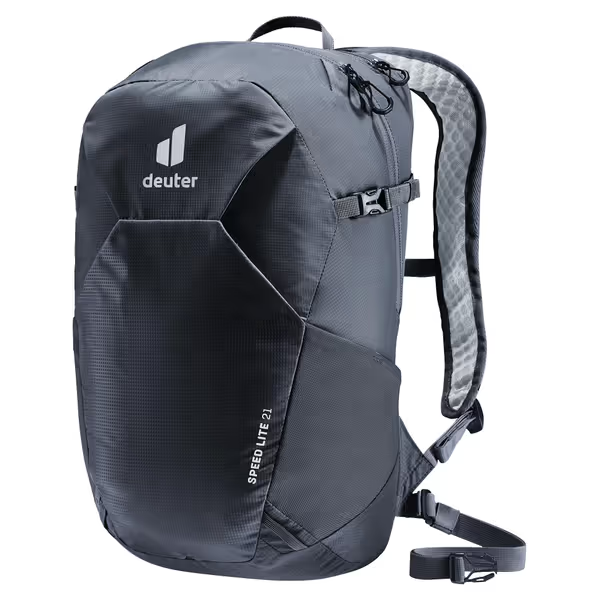
Deuter Speed Lite 21
5. Osprey Daylite Cinch 15L
For beginners starting with day hikes or those who prefer minimalist setups, the Daylite Cinch offers surprising versatility in a compact package. Its simple design belies thoughtful details that accommodate various body types.
Why it works for more bodies:
- Lightweight construction (under 1 lb) reduces strain on smaller frames
- Cinch closure system works with different torso lengths
- Dual side compression straps adapt to varying load sizes
The Daylite Cinch excels for beginners with shorter torsos or those who find larger packs overwhelming. The internal reservoir sleeve means you can carry adequate water without bulky external bottles, and the top handle doubles as a luggage pass-through for traveling to trailheads.
What beginners love most is how unobtrusive it feels at lower weights (10-15 lbs), it's the perfect transition pack as you build confidence for longer trips. The breathable mesh back keeps you cooler than expected for such a close-fitting design, and the streamlined profile prevents that "top-heavy" feeling common in smaller packs.
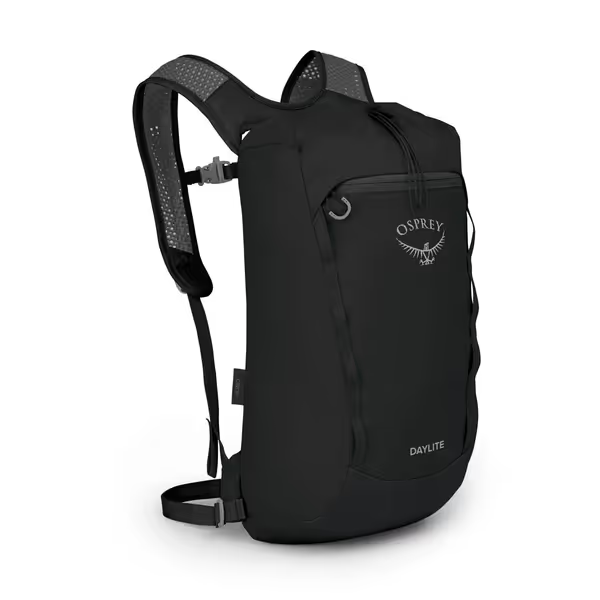
Osprey Daylite Cinch Backpack
Step 5: Making Your Final Decision (What Really Matters)
After evaluating dozens of packs with hikers of all shapes and sizes, I've learned that the best backpack for hiking camping isn't about the lightest weight or the most features, it's about which one adapts best to your body on your trail.
Ask yourself these questions before deciding:
- Does it maintain stability when I change direction quickly?
- Can I adjust it sufficiently to accommodate different layers (winter vs summer)?
- Do the pockets serve my organization style, or will I constantly fight them?
- Does it support my body type without requiring painful compromises?
Remember that "beginner" doesn't mean "temporary." Investing in a quality pack that fits well now means you won't need to replace it as you gain experience, saving money and reducing waste. The best starter backpacks grow with you, adapting to increasingly ambitious trips without requiring a complete gear overhaul.
Final Verdict: Your Body Deserves a Pack That Fits
After evaluating hundreds of hikers' experiences, the Osprey Stratos 24L emerges as the most universally adaptable option for beginners across diverse body types. Its combination of extended torso adjustment, superior ventilation, and thoughtful organization accommodates the widest range of bodies while maintaining trail performance.
However, your perfect pack depends on your unique needs:
- For technical terrain: Osprey Talon 22L
- For hot climates: Deuter Speed Lite 21
- For minimalist day hikes: Osprey Daylite Cinch 15L
- For versatility beyond the trail: The North Face Borealis 28L
Whatever you choose, remember this: the moment you find a pack that fits your body, you're not just buying gear, you're claiming your right to comfort on the trail. That hiker I met at the pop-up session? They're now planning their first 50-miler, because once they found a pack that worked for them, not against them, the trail opened up in ways they never imagined.
Go find your fit. Then go find your trail. And remember, whether you're carrying 15 pounds or 35, always micro-adjust, then walk.
Related Articles

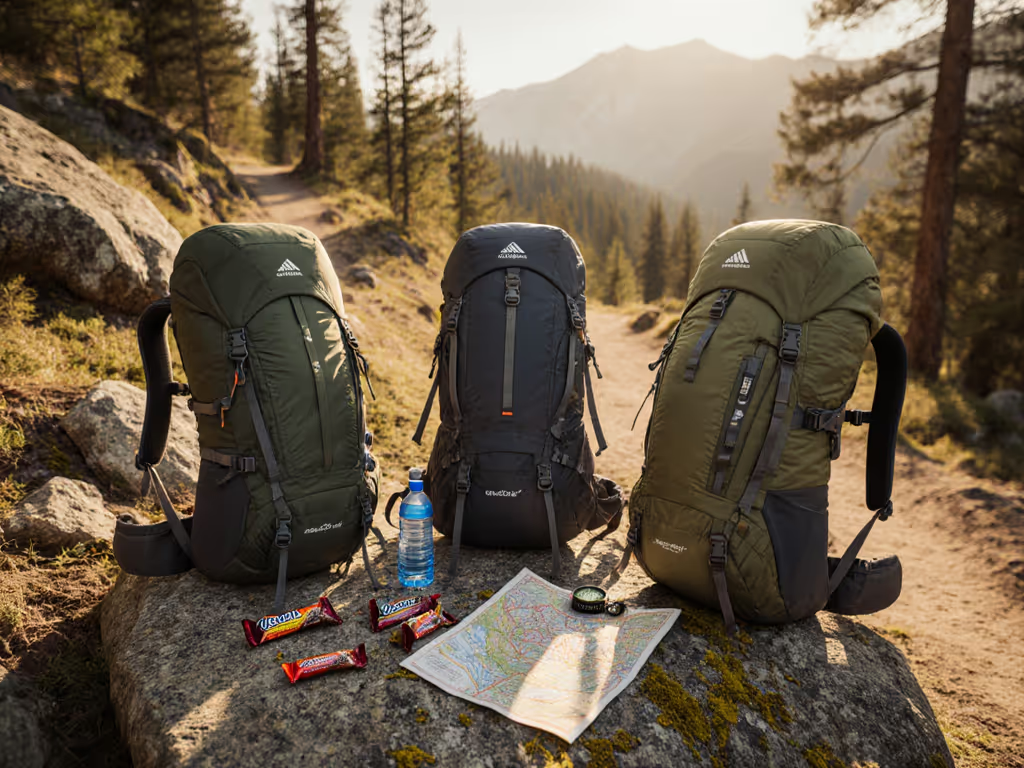
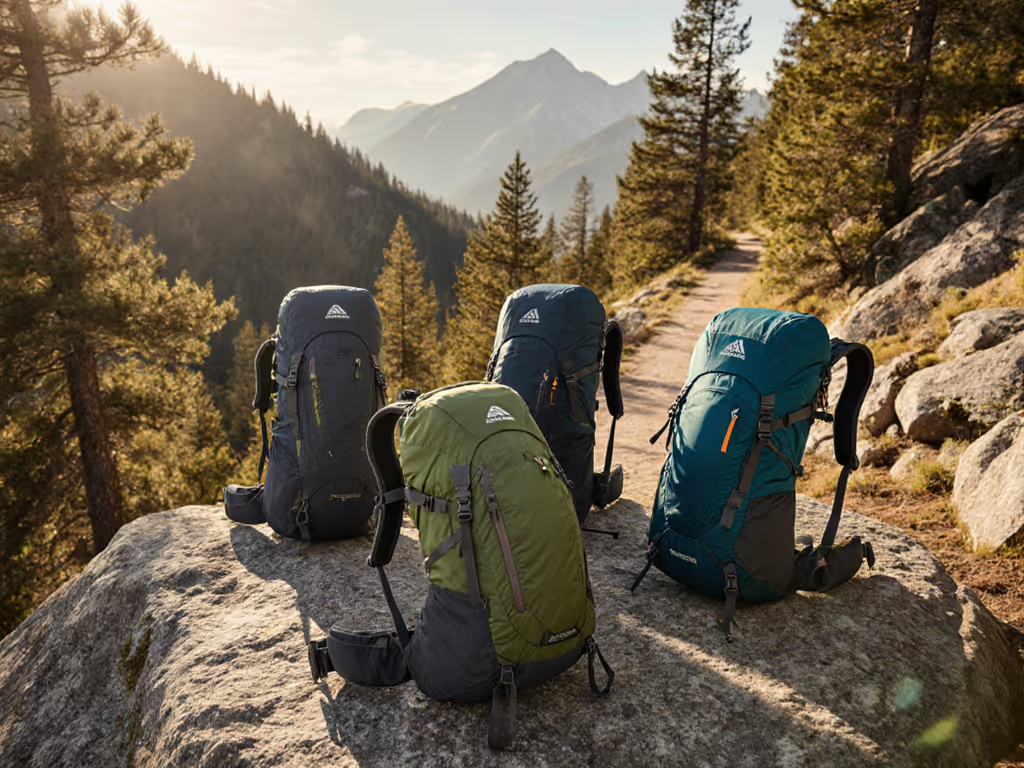
Best Hiking Daypacks: REI's Top 5 Pain-Free Picks
Cut through marketing to choose a daypack that maximizes pain-free miles per dollar, using cost-per-mile math and rankings by load stability, repairability, and resale value. Match real 15–30 lb loads to the right pick with a quick decision guide for comfort across seasons.
